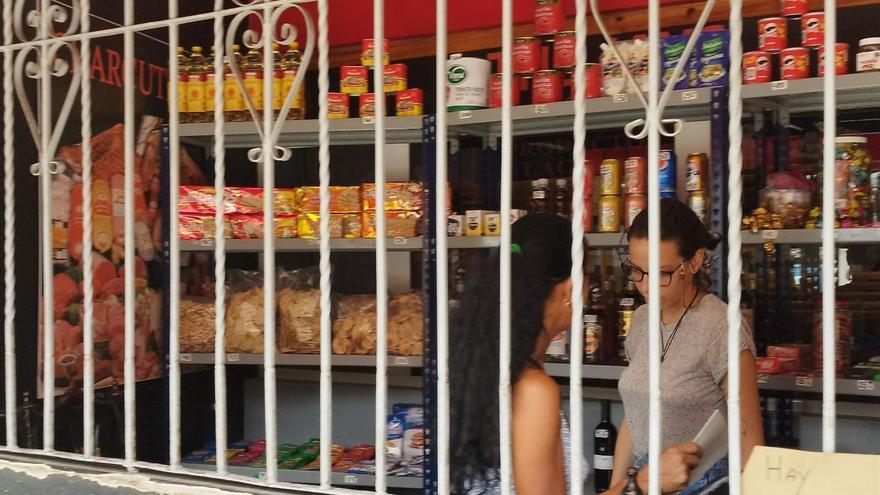
![]() 14ymedio, Havana, June 30, 2023 — Members of Cuba’s ruling party offered an unprecedented, sudden and impassioned defense of capitalism on Friday. The statements came as part of an extensive two-person interview published in Cubadebate on the role of micro, small and medium-sized companies companies (MSMEs) in the nation’s economy.
14ymedio, Havana, June 30, 2023 — Members of Cuba’s ruling party offered an unprecedented, sudden and impassioned defense of capitalism on Friday. The statements came as part of an extensive two-person interview published in Cubadebate on the role of micro, small and medium-sized companies companies (MSMEs) in the nation’s economy.
Though they acknowledged the misgivings many Cubans have towards these new economic “players”, Ileana Díaz Fernandez and Ricardo González Águila — introduced as professors at the Center for Studies of the Cuban Economy— they were unequivocal in their defense of them.
“The process of creating MSMEs has been positive for the country,” said Díaz Fernandez, who noted that 19.6% are involved in manufacturing activities and 12% in food and beverage production, and employ 225,000 people. She did not indicate, however, in what sectors the remaining 68% were involved.
When asked if these companies should be considered a threat to Cuba’s socialist system, she said “expectations are” that all forms of non-governmental management combined would be responsible for no more than 13.9% of gross domestic product and that “basic means of production would not be privately owned.”
“Socialism is not at odds with a mixed economy, which is to say the existence of different forms of property,” she continued. “It is essential that, instead of marginalizing them, they are involved in the construction of socialism, that co-existence with state forms is encouraged.”
González Águila added, “Conceptually speaking, privatization is associated with the transfer of ownership of a public asset to private companies, or the outsourcing of certain services provided by the state, for example, public health. As I understand it — and I believe this to be correct — that is not what happened in Cuba, what has been happening in Cuba. We have had to gradually get over the conceptual paradigm that tells us social progress is only possible if we rely exclusively on state-owned companies. And this paradigm shift has created an opening, which I would still describe as modest, for the private sector.”
What is most critical, he believes, “is the ability of the state to lead, design and coordinate the national development where the various players, both public and private, will have to be integrated and cooperate with each other.”
In this regard, he cites China and Vietnam as “conceptual references”, two countries “with a vibrant private sector that has managed to raise the quality of life for its population rather than destroy its social system.”
As for high retail prices in the private sector, which have been the subject of widespread popular complaints, González Águila says that it is not MSMEs which are responsible for the ongoing inflationary pressures but rather another underlying cause. “As long as there is a fiscal deficit and other quasi-fiscal factors, inflation will not abate, whether there are SMEs or not,” he claims.
Díaz Fernández pointed out that only 4.6% of private companies are in the retail sector compared to 19% for state-owned companies. “When there are fewer commercial MSMEs and state companies are unproductive, demand goes up. And when there is little competition, prices rise.” she said.
Joining in the defense of private enterprise several days ago was famed Cuban musician Silvio Rodríguez. On his blog Segunda Cita (Second Date), he responded forcefully to a post by Fidel Vascós González entitled “Rethinking Socialism.” Vascós González acknowledged that, since the fall of the Soviet Union, “the process [in Cuba] has not advanced far enough nor been as linear or as fully conceived as it should have been.” He called for a home-grown, Cuban version of democratic market socialism and for abandoning “the current system of highly centralized state socialism inherited from the USSR and CAME” (the Council for Mutual Economic Assistance created in 1949, which Cuba joined in 1972).
In much clearer language, Rodríguez wrote, “After experiencing socialism as a nation and having seen how other ‘socialisms’ have worked, the first thing to be said — because it is extremely important to speak clearly at this [critical] point for the world and for our country — is that the transitional phase known as socialism has, so far, not created a means of production that is superior to capitalism.”
“All forms of socialism that have survived and are prospering have capitalist economies,” Rodriguez pointed out. “I believe one of the biggest, if not the biggest, problems that we have is that we are trying to lead society as though we were leading a communist party meeting.”
“We are in the most difficult phase of the so-called revolutionary period, when there has been a loss of faith and confidence as never before,” Rodríguez added. “And, unfortunately, the level of communication has not been as high the situation requires… Trying to build on the basis of what’s been done before without a very clear and sincere discussion will, I believe, yield a result contrary to what is needed. [It requires] a frankness and clarity as unobjectionable as life itself. This is the only way to begin to change reality: by looking at it, treating it and discussing it as it is, not as we would like it to be.”
____________
COLLABORATE WITH OUR WORK: The 14ymedio team is committed to practicing serious journalism that reflects Cuba’s reality in all its depth. Thank you for joining us on this long journey. We invite you to continue supporting us by becoming a member of 14ymedio now. Together we can continue transforming journalism in Cuba.
